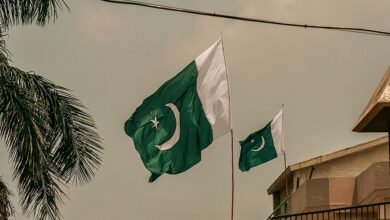Whenever things get darker, one looks around to find the risks surrounding the region from every direction, starting with ISIL and Ansar Bayt Al-Maqdis, down to the Houthis and Boko Haram. The east Arab region, North Africa and the whole international atmosphere carries daily events that speak imminent danger and constant worry.
In such circumstances, characterized by decline and deterioration, memory travels away to an era when the "Silk Road" linked between the Far East and the Near East, giving space for communication between civilizations for several centuries.
Taking the memory back to the beginning of the movement of Orient Express in the early eighties of the nineteenth century, a train, which is considered a witness to the most important and hottest events of the region starting from the recent years in the life of the "sick man" and the outbreak of two world wars that included the fall of the last Islamic caliphate under the Ottomans.
Perhaps contemporary generations remember the novel of British detective writer Agatha Christie called A Crime in the Orient Express, which continued to be presented on London's theater for more than a quarter of a century.
I say this now in order to prove that building a life beats the industry of death. A few decades ago, grandparents and parents were busy with construction and reconstruction, at a time when terrorism had not taken root in our hearts and did not have a place on our lands.
Let me put down the following two notes:
First: The nineteenth century has witnessed the harbingers of Enlightenment in the region, while the twentieth century witnessed attempts of national liberation after the Arabs received false promises from the allies to discover in the end that they have bought the tram when WW1 was dying.
We are before a sad scene that moved us from the spring of civilization with its arts and sciences to the fall of destruction, slaughter and picking heads, taking us back to the dark ages. We went out of the circle of the progress that we sought and urbanization, which we were getting ready for.
Where is the Silk Road about which orientalists have written and in which travelers throughout history have taken interest? And where is the Orient Express, which stopped just a few years ago? Pondering the developments of our situation and following up what has happened to us encourages us to take a road and gives us the ability to look forward to the future.
Second: No one disagrees on the importance of studying the "general theory of knowledge" and its role in the progress of peoples and the renaissance of nations, on the grounds that this would benefit the homeland. And still ongoing controversy and debate raging between various parties about the political environment that surrounds us and the social rituals that separate us believing that the problems of the Arab world is in silent dialogue between generations, which took a concrete escalatory form in recent years.
Our generation, which witnessed frustrations and failures, is looking forward to a new phase today stripping it away from its past and present.
The east Arab and North African region are going through an unprecedented phase in their history, as terrorism rears its head, targeting some Arab capitals. Where are the eras of construction that included the pyramids, Suez Canal and the High Dam?
We are facing serious challenges and unlimited risks and sorrows inherent in humans' chests.
This is a look into years when the will to live was the strongest, but now the smell of death prevails!




